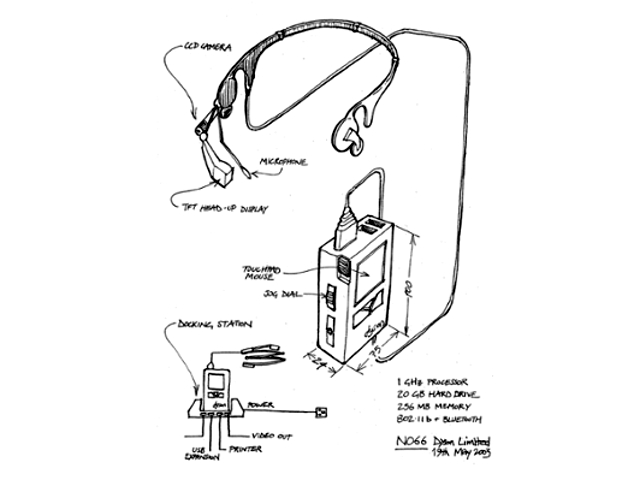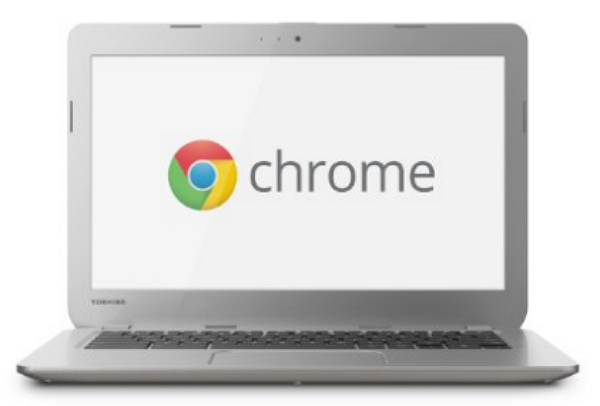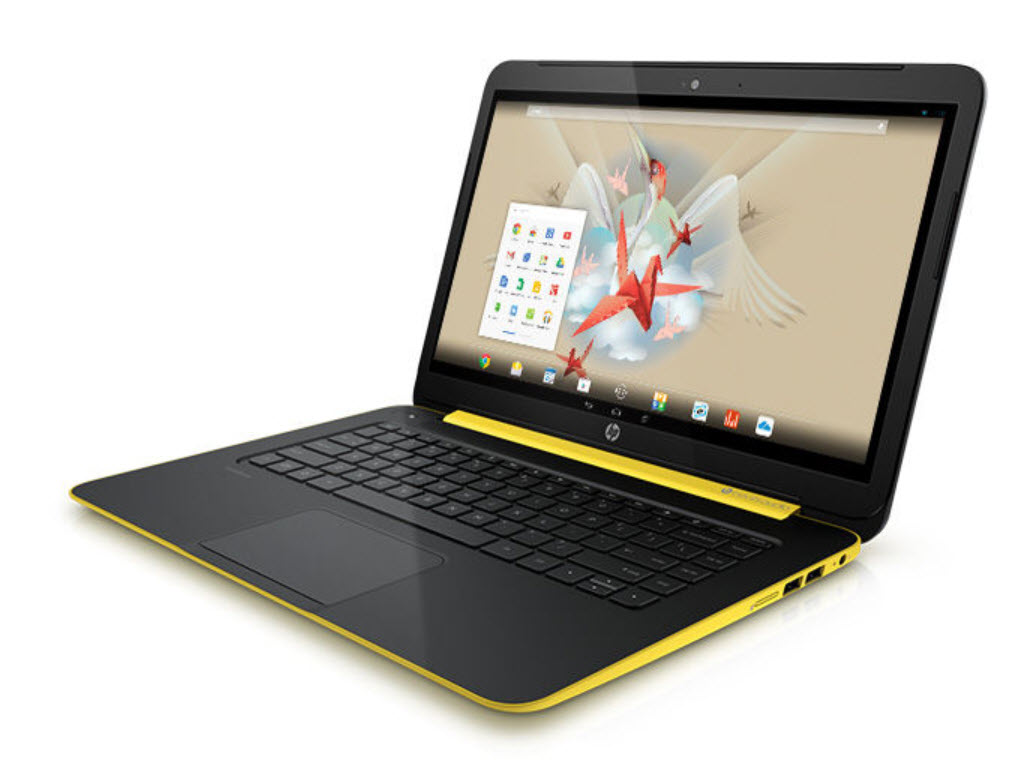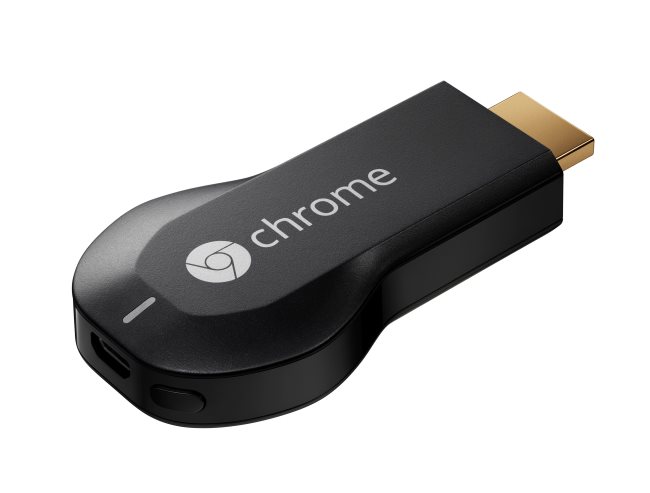
Dirty desktops and titillating tablets -- the browsers you use to get a porn fix
Porn has always been big business, and online porn accounts for a staggering proportion of web traffic. The availability of always-on internet connections in the home, and near blanket use of internet-enabled mobile phones and tablets, means that it is now easier than ever to get a porn fix if you feel the urge. But have you ever wondered how all of this porn is being accessed? Well… wonder no more! Porn site (you don’t say!) PornHub conducted research after Gizmodo expressed an interest in seeing which browsers were most used by consumers of porn, and the figures make for interesting reading.
It perhaps comes as no surprise that desktop browsers prove the most popular. Some 51 percent of Pornhub's traffic comes from people using desktop computers. But, without wanting to put too many unpleasant images in your head, this leaves 49 percent of porn perusal that is enjoyed on mobile phones and tablets. You know, those devices that are easily transported to a quiet room and are rather easier to hold in one hand than a laptop...

Google Hangouts 'button' available for apps and websites
Google Hangouts has become the chat standard for many of us. Long gone are the days of Aol Instant Messenger or MSN Messenger. If I want to chat with a friend, family member or coworker, I choose Google's service. It's not necessarily better than any other, but its value is in its ubiquity.
Today, Google expands the availability of access to the platform with the all-new Hangouts Button. This button allows one-click access to your desired chat buddy.

Google offers End-To-End encryption with new alpha Chrome extension
Today, Google took the wraps off a new security tool for Chrome users. Currently available as an alpha release, End-To-End is an extension for Google's browser that offers... well... end-to-end encryption for data arriving in and departing from Chrome. As this is only an alpha version, the extension is not currently available in the Chrome Web Store, but Google has made the code available so the privacy-conscious and security-minded can take it for a test drive.
Based on OpenPGP and a newly developed, JavaScript-based crypto library, End-to-End can be used to encrypt, decrypt, digitally sign, and verify signed messages. Google is keen to receive feedback -- discover a problem and you could cash in, thanks to the Vulnerability Reward Program. In a post on the Google Online Security Blog, Stephan Somogyi, Product Manager, Security and Privacy explains that "we recognize that this sort of encryption will probably only be used for very sensitive messages or by those who need added protection. But we hope that the End-To-End extension will make it quicker and easier for people to get that extra layer of security should they need it".

Google Chrome ships early versions for Windows 64-bit, promises better speed, stability and security
In a move that could -- and maybe should -- have happened years ago, Google has finally released native 64-bit Windows builds into the Chrome release channel. While not yet available to stable or beta channel users, those wishing to take full advantage of their 64-bit processors can do so with the release of Google Chrome 37 Dev and Google Chrome Canary 37.
The 64-bit builds -- according to Google -- hit the spot with its three "core principles": speed, security and stability.

Dyson was testing Google Glass style specs a decade ago
Dyson is of course famous for its vacuum cleaners (along with hand driers and so forth), but the company has experimented with products in other fields -- including a tech effort which bears an uncanny resemblance to an admittedly much clunkier version of Google Glass.
It's not surprising that it's clunky by nature, though, given that Dyson was working on this concept some ten years ago.

HP Chromebook 11 without Google is less appealing
Let me start by thanking HP public relations for quickly responding to my information request, even after my warning the story would likely be ugly -- and it is. Today, the company unveiled a new Chromebook 11 model that is less than the original. As widely-rumored last month, the beautiful, 300-nit, IPS display with wide viewing angles is gone. "It’s an 11.6-inch screen with standard display technology", according to HP. That means dimmer and duller.
HP designed the first Chromebook 11 "With Google", which is branding appearing on the computer's underside. The laptop without Google matches the look of the 14-inch model, adopts similar fantastic keyboard, reduces display quality, and keeps the same aged ARM chip and puny 2GB of memory. The panel and processor choices perplex. If I had to choose between the original, which I reviewed in October, and its successor the choice is simple: Last year's model, which debuted at $279 and is available from Amazon for $225. The newer Chromebook 11 lists for $279 and sales start next month. Even if priced the same, I would choose the original.

Google launches Chromebooks in nine more nations
Last week I mentioned that I've been working from a Chromebook recently, in this case an HP 11. However, folks in other nations are not all so fortunate, as the platform is not yet available everywhere. That's something that Google would like to change, for both the benefit of itself and consumers.
Today nine more regions were checked off the list with a poetic announcement from Google's David Shapiro, who is director of Chromebook marketing.

HP wants you to forget Chrome OS and embrace the Android laptop SlateBook
At the cheap end of the laptop market, there isn’t really all that much choice at the moment. Chromebook has the bargain basement side of things covered, but this is not an OS that works for everyone. Android is, by quite some way, the most popular operating system on phones and tablets, so it makes sense that it should also prove popular on a laptop, right? This is what HP is hoping, at least, as it launches its new SlateBook, a 14 inch, touchscreen laptop that runs Android.
Launching July 20, the SlateBook has a price tag of $399 and includes a full-sized keyboard in addition to a 1080p touchscreen. As this is a device running Android, it should perhaps come as no surprise that battery life is fairly high. The quoted nine hours is fairly impressive and this is being touted as an entertainment device. To back up this claim, in addition to the longevity of the battery, four speakers from the Apple-acquired BeatsAudio provide what is described as "the best-sounding, richest audio on a notebook".

The most popular stories on BetaNews this past week - May 25 -- May 31
No week would be complete without a little Windows news, and this week was no different. A registry hack emerged that should make it possible to receive updates for the no-longer-supported Windows XP right up until 2019. Microsoft later spoiled the fun by pointing out that it could lead to problems as the updates that would be made available as a result of implementing the hack would not be designed for regular desktop versions of Windows XP.
Last week we were wondering why it took eBay quite so long to warn users to update their passwords after a security breach earlier in the year. This week we discovered that it was because the company was under the impression that no user data had been accessed. Apple forgot to renew its SSL certificate, and in another Apple-related security story, a hacker managed to take control of iOS and Mac devices, and hold them ransom. To console itself, the company then splashed the cash on Beats Music -- Joe pondered whether this was just another indication of Apple's lack of innovation.

Google gives in, sets up 'forget me' form following EU ruling
A couple of weeks ago, a European court ruling said that internet users had a "right to be forgotten". Google was at the center of the test case, and the internet giant expressed disappointment at the court's decision that individuals should be able to request that their details be removed from search results. Now a removal request form has been created for those looking to clear their name from search queries.
In order to use the form, individuals are required to provide a "valid form of photo ID". It is then possible to request that information that is "inadequate, irrelevant or no longer relevant, or excessive in relation to the purposes for which they were processed" be removed. Google has already made it clear that it found the court ruling "disappointing", and the company says that submitting a request is no guarantee of having details removed from search results.

Find out if your ISP sucks at streaming YouTube videos with Google Video Quality Report
Many people are enjoying 4K videos on YouTube nowadays. Believe it or not, there is already content on Google's video site which is shot in that ultra-high resolution. I myself have enjoyed videos of nature and playful puppies in 4K, and it is exquisite.
Sadly, not everyone has a fast enough connection to stream 4K video. Hell, apparently, people are even struggling to play 720p and 1080p without excessive buffering. Well, Google does not like this and it wants you to know that the problem is not YouTube, but your ISP. You see, today, the company releases a new tool which will tell you if your ISP sucks.

YouTube holds a karaoke party to celebrate 9th birthday
YouTube has become the defacto place to find just about anything and, while cat videos remain popular, music is also a big part of the service. Users seem to flock to the place to watch music videos by major artists that sometimes go viral, as well as unknown people who become memes.
YouTube spent some time reminiscing about its memorable past in an announcement of the birthday celebration. "To call out just a few highlights in YouTube history, there are more than 120,000 videos inspired by 'Let it Go' (based on videos posted with that title), half a million by 'Gangnam Style,' and a stunning 1.5 million videos by 'Harlem Shake' (that’s a lot of motorcycle helmets). These inspired riffs got us thinking about those magical moments when songs become bona fide trends—and people all over the world start remixing, covering, parodying, dancing, and lip-dubbing", says the company's Claire Stapleton.

Google launches Chromecast in additional regions
Last year, in fact, almost one year ago, Google unveiled Chromecast. The tiny HDMI dongle was a surprise addition to the latest Nexus 7 announcement, but launched in the US only. However, over the course of its existence, the company has been slowly rolling it out across other regions.
Now Google is announcing its latest round of nations, telling us "these countries are home to some of the biggest fans of online content in the world, and the smartphone is one of the most popular ways for them to access it".

Mountain View to take on Detroit? Google building its own cars
When Google's self-driving car program first came to light, I was excited, yet dubious. You see, as much as I love the concept, it is hard to imagine widespread adoption; Americans love to drive -- the USA is the home of the Mustang and GTO. While self-driving cars can have a positive impact on society, such as eliminating DUI, it would destroy a huge part of the USA's identity.
Now, Google shocks the world by announcing that it is building its own self-driving automobiles. Yes, Mountain View is stepping on the toes of automakers by building prototype cars. Rather than continue to retrofit its technology on existing cars, it is making vehicles without unneeded extras, such as break-pedals and steering wheels.

Chrome takes another step towards protecting users with new malware measures
Google's Chrome web browser has been actively attempting to protect its users since inception, which is a tall order given today's climate. While blocking certain things is easy, protecting customers from their own mistakes is much more difficult.
Now the company is announcing a new way to do exactly that, letting it be known that users will no longer be able to install extensions from any location other than the approved Web Store. "From now on, to protect Windows users from an attack, extensions can be installed only if they're hosted on the Chrome Web Store. With this change, extensions that were previously installed may be automatically disabled and cannot be re-enabled or re-installed until they're hosted in the Chrome Web Store", says Eric Kay, an engineering director with the search giant.